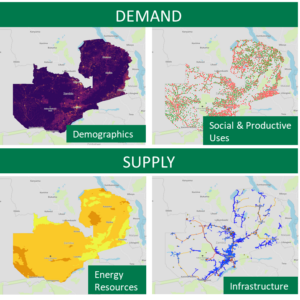Written by Mary Githinji, Kenya Country Manager – ACE TAF
In March 2020, the Tax Laws (Amendment) Bill, 2020 was published proposing the deletion of VAT exemptions on Off-grid Solar products. Subsequently, ACE TAF provided support to KEREA to advocate against the removal of VAT exemption on solar products.
However, despite the concerted efforts by the sector, the Finance Act, 2020 was signed into law on 30th June 2020 introducing a raft of changes to the Value Added Tax Act No. 35 of 2013 to cushion a distressed economy in response to Covid 19, the global pandemic. The VAT changes, as with many tax laws had winners and losers. The winners in the VAT amendments included: the general public through a reduced VAT of 14% from the normal rate of 16%; and the formally employed who saw a reduction in their Pay As You Earn (PAYE) by 5%. However, it is unclear whether these tax rates will revert to their previous levels when the Covid situation is deemed to be at a manageable level in the country.
There were many losers with government removing exemptions and introducing minimum tax rates for businesses as well as a digital service tax. Specifically, the government introduced a VAT of 14% to specialized equipment for the development and generation of solar and wind energy. The Finance Act, 2020 made further amendments to the VAT Act deleting various exemptions including Specialized equipment for the development and generation of solar and wind energy, including deep cycle batteries which use or store solar power.
The Finance Act, 2020 also introduced an additional amendment to the VAT Act through the introduction of a Digital Services Tax (DST) on income from services provided through a digital marketplace in Kenya at the rate of 1.5% on the gross turnover effective January 2021. The government has also published Digital Service Regulations, 2020 which are currently undergoing public participation. It is unclear how this tax will be applied, and to what extent the SAS sector, especially PAYGO companies will be affected by this tax.

In addition, The East African Community in its June 30th, 2020 Gazette made amendments to Article 26 of the 5th Schedule to the East Africa Community Customs Management Act (EACCMA). The Act reversed previous exemptions for specialised equipment for development and generation of Solar and Wind Energy, including accessories and deep cycle batteries which use and/or store solar power.
These changes will undoubtedly affect the sector as consumers prices will increase even as they grapple with a difficult economic situation occasioned by the current Covid-19 pandemic whilst companies in the sector will be forced to balance between affordability of the products and their financial sustainability.
ACE TAF is working with a Kenya Off-grid Solar working group led by GOGLA to support the industry response to the raft of changes in the taxation framework. Specifically, ACE TAF is preparing to undertake a socio-economic impact assessment of the changes to the tax framework as it impacts access to energy for vulnerable populations especially in the 14 underserved counties in the country. This study is being carried out in three parts to provide a sector wide response to the changes in taxes. Specifically, ACE TAF is supporting the impact assessment on the SAS sector; while the Green Mini Grid (GMG) Facility is working with Power Africa Off Grid Project (PAOP) to support the impact on mini grids; the Clean Cooking Association of Kenya who are also affected are seeking support to undertake the same study for their sector.
In addition, the consortium of actors are undertaking a preliminary survey to gather initial impact on the changes to VAT and import duty on their business. Once this survey is completed, it is expected that the results will be used to engage with the Ministry of Energy and the National Assembly Committee for Energy in a bid to advocate for an appropriate taxation framework. The subsequent results from the socioeconomic impact assessment will also be discussed and shared with the policy makers to address the development of a suitable tax framework which does not impact on the affordability of solar products for vulnerable populations.










